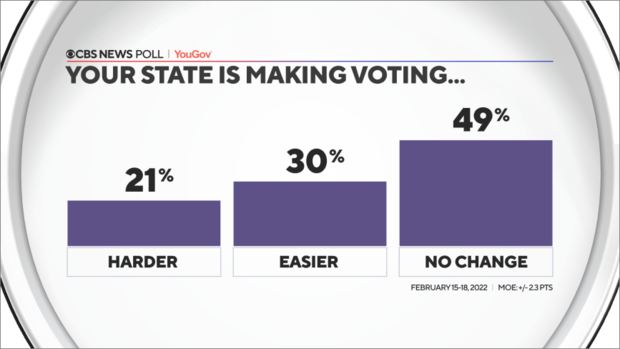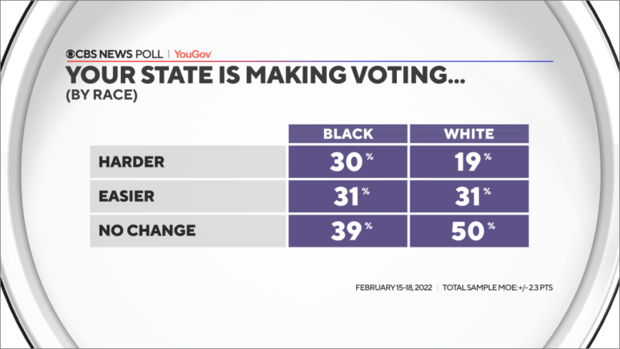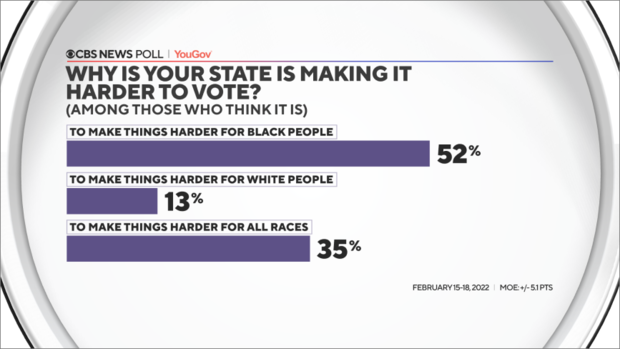Most don't think their state is making voting harder, but those who do see racial intent - CBS News Poll
In the wake of several states enacting further restrictions to voting procedures since 2020, most people do not think their state is making it harder for people to register and vote, but there are differences by race and region.
Overall, about half say their states aren't changing how people register and vote, and the rest are more likely to say things are being made easier than harder. People may be extrapolating from their personal experience with the process, which the vast majority felt was easy in 2020, according to a CBS News study of voting in America.
Black people nationwide are more evenly divided between saying states are making it easier, making it harder and not making changes. In Southern states, however, a 4-in-10 plurality say it's being made harder, which is double the number of Black Southerners who say it's being made easier.
Regardless of their racial background or place of residence, people who say their state is making the process harder tend to identify a racialized intent. They are much likelier to say it's intended to "make things harder for Black people than White people" than they are to say the opposite.
These results echo our previous findings that people of color worry that proposed changes, like reducing the availability of early voting, will make voting harder for them personally, as well as a more general sentiment that federal oversight is still necessary to make sure minorities have the same access to voting as White people do.
Jennifer De Pinto, Anthony Salvanto, and Fred Backus contributed to this report.
This story is part of a series from the CBS News poll looking at Black Americans' views on a range of important issues as part of Black History Month.
This CBS News/YouGov survey was conducted with a nationally representative sample of 2,494 U.S. adult residents interviewed between February 15-18, 2022. Respondents were selected to be representative of adults nationwide with an oversample of African-American respondents included, and the final sample as reported was weighted to be representative of adults nationwide according to gender, age, race, and education based on the U.S. Census American Community Survey and Current Population Survey, as well as to 2020 presidential vote. The margin of error for the total sample is ±2.3 points. The margin of error for the sample of African Americans is ±5.0 points.







